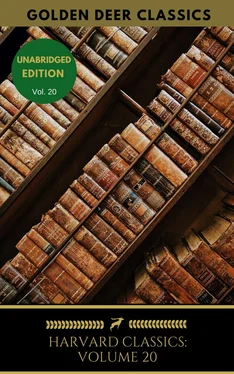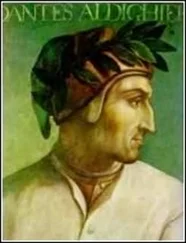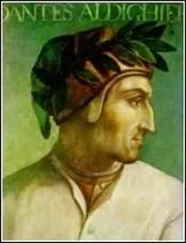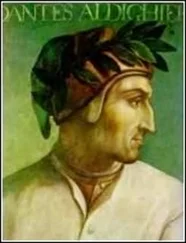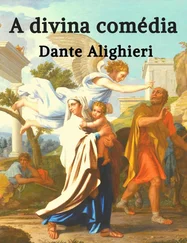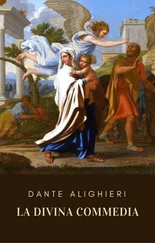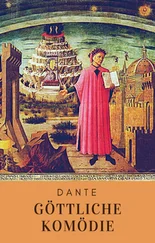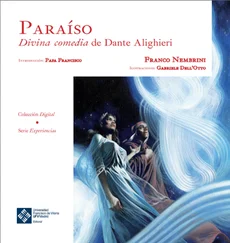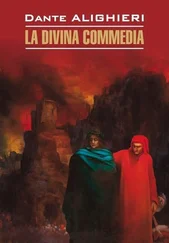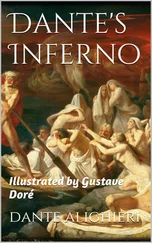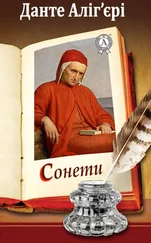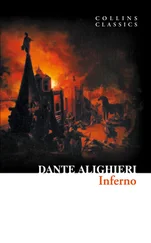Array Dante Alighieri - Harvard Classics Volume 20
Здесь есть возможность читать онлайн «Array Dante Alighieri - Harvard Classics Volume 20» — ознакомительный отрывок электронной книги совершенно бесплатно, а после прочтения отрывка купить полную версию. В некоторых случаях можно слушать аудио, скачать через торрент в формате fb2 и присутствует краткое содержание. Жанр: unrecognised, на английском языке. Описание произведения, (предисловие) а так же отзывы посетителей доступны на портале библиотеки ЛибКат.
- Название:Harvard Classics Volume 20
- Автор:
- Жанр:
- Год:неизвестен
- ISBN:нет данных
- Рейтинг книги:5 / 5. Голосов: 1
-
Избранное:Добавить в избранное
- Отзывы:
-
Ваша оценка:
- 100
- 1
- 2
- 3
- 4
- 5
Harvard Classics Volume 20: краткое содержание, описание и аннотация
Предлагаем к чтению аннотацию, описание, краткое содержание или предисловие (зависит от того, что написал сам автор книги «Harvard Classics Volume 20»). Если вы не нашли необходимую информацию о книге — напишите в комментариях, мы постараемся отыскать её.
1. The Divine Comedy, by Dante Alighieri
Also available:
The Complete Harvard Classics Collection (51 Volumes + The Harvard Classic Shelf Of Fiction)
50 Masterpieces You Have To Read Before You Die (Golden Deer Classics)
Harvard Classics Volume 20 — читать онлайн ознакомительный отрывок
Ниже представлен текст книги, разбитый по страницам. Система сохранения места последней прочитанной страницы, позволяет с удобством читать онлайн бесплатно книгу «Harvard Classics Volume 20», без необходимости каждый раз заново искать на чём Вы остановились. Поставьте закладку, и сможете в любой момент перейти на страницу, на которой закончили чтение.
Интервал:
Закладка:
In dolour parted, beating to and fro,
And writhing its sharp horn. We onward went,
I and my leader, up along the rock,
Far as another arch, that overhangs
The foss, wherein the penalty is paid
Of those who load them with committed sin.
Canto XXVIII
Argument.—They arrive in the ninth gulf, where the sowers of scandal, schismatics, and heretics, are seen with their limbs maimed or divided in different ways. Among these the Poet finds Mohammed, Piero da Medicina, Curio, Mosca, and Bertrand de Born.
Who, e’en in words unfetter’d, might at full
Tell of the wounds and blood that now I saw,
Though he repeated oft the tale? No tongue
So vast a theme could equal, speech and thought
Both impotent alike. If in one band
Collected, stood the people all, who e’er
Pour’d on Apulia’s happy soil their blood,
Slain by the Trojans, and in that long war, [191]
When of the rings the measured booty made
A pile so high, as Rome’s historian writes
Who errs not; with the multitude, that felt
The griding force of Guiscard’s Norman steel, [192]
And those the rest, [193]whose bones are gather’d yet
At Ceperano, there where treachery
Branded the Apulian name, or where beyond
Thy walls, O Tagliacozzo, [194]without arms
The old Alardo conquer’d; and his limbs
One were to show transpierced, another his
Clean lopt away; a spectacle like this
Were but a thing of naught, to the hideous sight
Of the ninth chasm. A rundlet, that hath lost
Its middle or side stave, gapes not so wide
As one I mark’d, torn from the chin throughout
Down to the hinder passage: ’twixt the legs
Dangling his entrails hung, the midriff lay
Open to view, and wretched ventricle,
That turns the englutted aliment to dross.
Whilst eagerly I fix on him my gaze,
He eyed me, with his hands laid his breast bare,
And cried, “Now mark how I do rip me: lo!
How is Mohammed mangled: before me
Walks Ali [195]weeping, from the chin his face
Cleft to the forelock; and the others all,
Whom here thou seest, while they lived, did sow
Scandal and schism, and therefore thus are rent.
A fiend is here behind, who with his sword
Hacks us thus cruelly, slivering again
Each of this ream, when we have compast round
The dismal way; for first our gashes close
Ere we repass before him. But, say who
Art thou, that standest musing on the rock,
Haply so lingering to delay the pain
Sentenced upon thy crimes.” “Him death not yet,”
My guide rejoin’d, “hath overta’en, nor sin
Conducts to torment; but, that he may make
Full trial of your state, I who am dead
Must through the depths of Hell, from orb to orb
Conduct him. Trust my words; for they are true.”
More than a hundred spirits, when that they heard,
Stood in the foss to mark me through amaze
Forgetful of their pangs. “Thou, who perchance
Shalt shortly view the sun, this warning thou
Bear to Dolcino: [196]bid him, if he wish not
Here soon to follow me, that with good store
Of food he arm him, lest imprisoning snows
Yield him a victim to Novara’s power;
No easy conquest else”: with foot upraised
For stepping, spake Mohammed, on the ground
Then fix’d it to depart. Another shade,
Pierced in the throat, his nostrils mutilate
E’en from beneath the eyebrows, and one ear
Lopt off, who, with the rest, through wonder stood
Gazing, before the rest advanced, and bared
His wind-pipe, that without was all o’ersmear’d
With crimson stain. “O thou!” said he, “whom sin
Condemns not, and whom erst (unless too near
Resemblance do deceive me) I aloft
Have seen on Latian ground, call thou to mind
Piero of Medicina, [197]if again
Returning, thou behold’st the pleasant land [198]
That from Vercelli slopes to Marcabo;
And there instruct the twain, [199]whom Fano boasts
Her worthiest sons, Guido and Angelo,
That if ’tis given us here to scan aright
The future, they out of life’s tenement
Shall be cast forth, and whelm’d under the waves
Near to Cattolica, through perfidy
Of a fell tyrant. ’Twixt the Cyprian isle
And Balearic, ne’er hath Neptune seen
An injury so foul, by pirates done,
Or Argive crew of old. That one-eyed traitor
(Whose realm there is a spirit here were fain
His eye had still lack’d sight of) them shall bring
To conference with him, then so shape his end
That they shall need not ’gainst Focara’s wind [200]
Offer up vow nor prayer.” I answering thus:
“Declare, as thou dost wish that I above
May carry tidings of thee, who is he,
In whom that sight doth wake such sad remembrance.”
Forthwith he laid his hand on the cheek-bone
Of one, his fellow-spirit, and his jaws
Expanding, cried: “Lo! this is he I wot of:
He speaks not for himself: the outcast this,
Who overwhelm’d the doubt in Cæsar’s mind, [201]
Affirming that delay to men prepared
Was ever harmful.” Oh! how terrified
Methought was Curio, from whose throat was cut
The tongue, which spake that hardy word. Then one,
Maim’d of each hand, uplifted in the gloom
The bleeding stumps, that they with gory spots
Sullied his face, and cried: “Remember thee
Of Mosca [202]too; I who, alas! exclaim’d,
‘The deed once done, there is an end,’ that proved
A seed of sorrow to the Tuscan race.”
I added: “Ay, and death to thine own tribe.”
Whence, heaping woe on woe, he hurried off,
As one grief-stung to madness. But I there
Still linger’d to behold the troop, and saw
Thing, such as I may fear without more proof
To tell of, but that conscience makes me firm,
The boon companion, who her strong breastplate
Buckles on him, that feels no guilt within,
And bids him on and fear not. Without doubt
I saw, and yet it seems to pass before me,
A headless trunk, that even as the rest
Of the sad flock paced onward. By the hair
It bore the sever’d member, lantern-wise
Pendent in hand, which look’d at us, and said,
“Woe’s me!” The spirit lighted thus himself;
And two there were in one, and one in two.
How that may be, he knows who ordereth so.
When at the bridge’s foot direct he stood,
His arm aloft he rear’d, thrusting the head
Full in our view, that nearer we might hear
The words, which thus it utter’d: “Now behold
This grievous torment, thou, who breathing go’st
To spy the dead: behold, if any else
Be terrible as this. And, that on earth
Thou mayst bear tidings of me, know that I
Am Bertrand, [203]he of Born, who gave King John
The counsel mischievous. Father and son
I set at mutual war. For Absalom
And David more did not Ahitophel,
Spurring them on maliciously to strife.
For parting those so closely knit, my brain
Parted, alas! I carry from its source,
That in this trunk inhabits. Thus the law
Of retribution fiercely works in me.”
Конец ознакомительного фрагмента.
Текст предоставлен ООО «ЛитРес».
Прочитайте эту книгу целиком, купив полную легальную версию на ЛитРес.
Безопасно оплатить книгу можно банковской картой Visa, MasterCard, Maestro, со счета мобильного телефона, с платежного терминала, в салоне МТС или Связной, через PayPal, WebMoney, Яндекс.Деньги, QIWI Кошелек, бонусными картами или другим удобным Вам способом.
Интервал:
Закладка:
Похожие книги на «Harvard Classics Volume 20»
Представляем Вашему вниманию похожие книги на «Harvard Classics Volume 20» списком для выбора. Мы отобрали схожую по названию и смыслу литературу в надежде предоставить читателям больше вариантов отыскать новые, интересные, ещё непрочитанные произведения.
Обсуждение, отзывы о книге «Harvard Classics Volume 20» и просто собственные мнения читателей. Оставьте ваши комментарии, напишите, что Вы думаете о произведении, его смысле или главных героях. Укажите что конкретно понравилось, а что нет, и почему Вы так считаете.
